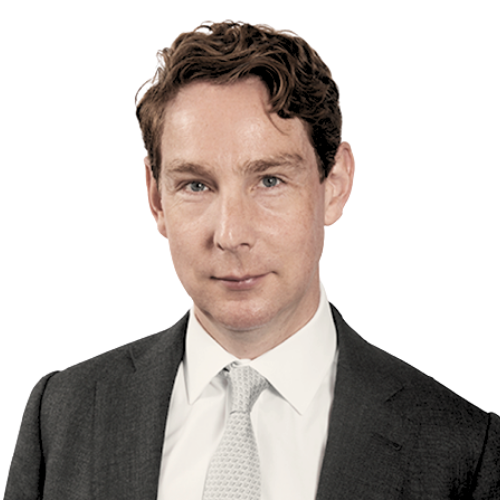欧盟的《人工智能法案》(AI Act)是一项具有里程碑意义的法规,旨在确保人工智能技术的开发、部署和使用符合道德规范且安全可靠。
本文探讨了《人工智能法案》对金融、技术和人力资源等关键领域的影响,同时强调了需要做好准备的关键日期。
了解欧盟人工智能法案
人工智能法》根据潜在风险对人工智能系统进行了分类,并为每个类别确定了规则和要求:
- 不可接受的风险:禁止使用对安全或基本权利构成明显威胁的人工智能系统,例如政府的社会评分。
- 高风险:在招聘、金融服务和医疗保健等关键领域使用的系统必须遵守严格的要求,包括风险评估、透明度和人工监督。
- 有限风险:聊天机器人等风险最小的人工智能系统必须遵守基本的透明度要求
- 最低风险:大多数面向消费者的人工智能应用都属于这一类,没有特定的要求。
对于企业来说,高风险分类具有重大意义,因为它要求采取严格的合规措施。
重要日期
1 August 2024
The AI Act entered into force, marking the beginning of its phased implementation.
2 February 2025
Prohibitions on certain AI systems deemed to pose unacceptable risks became applicable.
2 August 2025
Obligations for providers of General Purpose AI (GPAI) models commence, alongside requirements for Member States to designate national competent authorities and establish rules for penalties and fines.
2 February 2026
Deadline for Commission to provide guidelines specifying the practical implementation of Rules for High-Risk AI Systems, including post-market monitoring plan.
2 August 2026
The majority of the AI Act’s provisions, including those related to high-risk AI systems, come into full effect.
2 August 2027
Obligations on high-risk systems apply to products already required to undergo third-party conformity assessments. This includes products such as toys, radio equipment, in-vitro medical devices, and agricultural vehicles. GPAI systems placed on the market before 2 August 2025 become subject to the Act’s provisions.
31 December 2030
AI systems that are components of the large-scale IT systems listed in Annex X that have been placed on the market or put into service before 2 August 2027 must be brought into compliance with the Act.
这对您的组织意味着什么?
1.监管挑战与合规
人工智能法》引入了严格的合规要求,尤其是针对高风险应用。公司必须制定强有力的治理框架,以解决以下问题:
- 数据透明:确保人工智能系统在多样化、无偏见的数据集上接受训练。
- 问责制:维护人工智能决策的文档和审计跟踪。
- 人为监督:建立必要的人工干预机制。
如果不遵守规定,将被处以高达 3500 万欧元或全球年营业额 7% 的巨额罚款,以金额较高者为准。对于全球性组织来说,在不同辖区调整人工智能战略对于驾驭复杂的监管环境至关重要。
2.金融服务
利用人工智能进行信用评分、欺诈检测或投资建议的金融机构面临着更严格的审查。人工智能法》要求
- 全面风险评估,识别算法中的潜在偏差。
- 透明地宣传人工智能在决策中的作用,特别是在面向客户的应用中。
- 加强网络安全措施,降低与自动化系统相关的风险。
为了保持竞争力,企业必须在创新与监管合规之间取得平衡,确保人工智能工具在提供价值的同时不损害道德标准。
3.技术部门
技术行业作为人工智能发展的中坚力量,必须适应更严格的设计和部署标准。主要影响包括
- 开发高风险人工智能系统的成本增加,因为遵守人工智能法案的要求需要进行大量的测试和文档编制。
- 更加重视人工智能模型的可解释性和可解读性,确保利益相关者了解决策是如何做出的。
- 与监管机构合作,完善指导方针,解决法案中的模糊之处。
4.人力资源
根据该法案,人工智能驱动的招聘、员工监控和绩效评估工具被归类为高风险工具。许多公司正在使用包含人工智能分析的第三方筛选工具。然而,许多组织可能无意中对这些工具的运作方式缺乏清楚的了解。因此,如果员工证明他们因使用这些人工智能工具而遭受了骚扰或虐待,公司(而非工具提供商)将面临潜在的诉讼风险。此外,任何用于监控员工行为的人工智能工具,即使是那些看似无害的计时工具,也很可能会受到现有法规的监管。
雇主必须
- 定期进行审计,确保人工智能系统不会使歧视永久化。
- 向候选人和员工提供有关人工智能在决策过程中的作用的明确信息。
- 实施人工监督程序,以审查和质疑人工智能驱动的决策。
欧盟人工智能法案的准备步骤
- 进行人工智能清查:确定所有正在使用的人工智能系统,评估其在《人工智能法》下的分类。
- 加强管理:建立跨职能团队来监督人工智能合规性,让法律、技术和运营利益相关者参与其中。
- 董事会层面的监督:由于违规风险高,人工智能治理将成为董事会层面的问题,董事会层面的监督至关重要。
- 聘请专家:寻求人工智能道德顾问和法律顾问的指导,以有效解释和应用该法案的规定。
- 投资培训:教育员工了解《人工智能法》的影响,培养使用人工智能的道德文化。
- 监控发展:随时了解法案及相关法规的更新情况,以预测和适应变化。
欧盟将在 2026 年 8 月初左右建立一个高风险系统数据库–与人工智能清单有关的另一个准备步骤是对任何正在使用的高风险系统进行具体审查和分类,并与供应商接触,以了解他们打算如何应对该法案规定的义务。
还应审查使用人工智能的任何工具的总体采购情况,并在该法案全面实施之前及早制定标准。例如,可以对第三方人工智能工具提出具体的审计要求。
还有一点需要注意的是,虽然欧盟有自己的法案,但随着其他辖区制定自己的监管要求,也会出现跨境问题,当然也不可能完全一致。多辖区审查是一个问题。
总之
人工智能法》代表着人工智能监管方式的变革,对各行各业的企业具有深远影响。通过了解其要求并积极做好准备,企业不仅可以降低风险,还可以将自己定位为道德人工智能应用的领导者。随着关键日期的临近,现在是采取行动的时候了。
资料来源:https://artificialintelligenceact.eu/
如需讨论如何让您的组织面向未来,请联系我们的变革咨询业务总经理Adriaan Hugo。



